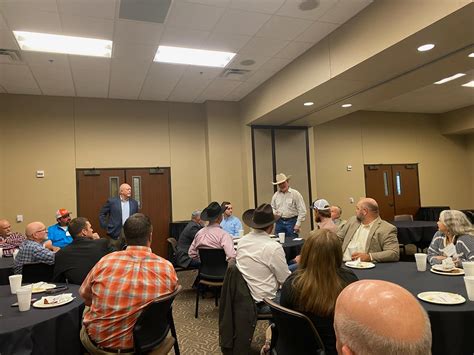Introduction

Robertson County Farm Bureau, located in the vibrant city of Springfield, Tennessee, stands as a pillar of support for the local agricultural community. For decades, the organization has been dedicated to advocating for farmers, promoting rural development, and providing educational resources to enhance agricultural practices. This article delves into the multifaceted role of Robertson County Farm Bureau, exploring its impact on the county’s agricultural landscape and the lives of those who rely on it.
A Legacy of Advocacy and Support
Established in 1945, Robertson County Farm Bureau has a rich history of representing the interests of farmers and agricultural stakeholders. The organization serves as a liaison between farmers and government agencies, ensuring their voices are heard in policy discussions. Through its lobbying efforts, the Farm Bureau has successfully influenced legislation that supports agricultural businesses, protects farmland, and promotes economic growth in the county.
Promoting Rural Development and Entrepreneurship
Robertson County Farm Bureau recognizes the vital role that agriculture plays in the economic well-being of rural communities. The organization actively promotes rural development initiatives that enhance the quality of life for residents. Through its partnerships with local businesses and government entities, the Farm Bureau supports infrastructure improvements, educational opportunities, and programs that foster economic growth.
Educational Resources for Farmers and the Community
Farmer education is a cornerstone of Robertson County Farm Bureau’s mission. The organization offers a comprehensive range of educational programs and workshops designed to enhance agricultural practices and knowledge. These programs cover a wide spectrum of topics, including crop production, livestock management, financial planning, and environmental stewardship. The Farm Bureau also provides resources to youth interested in pursuing careers in agriculture.
Agriculture in Robertson County
Agriculture is the backbone of Robertson County’s economy, with nearly 200,000 acres of farmland contributing to the county’s prosperity. The county is known for its production of various crops, including soybeans, corn, and wheat. Livestock production, particularly cattle and poultry, also plays a significant role in the local agricultural landscape. According to USDA statistics, Robertson County ranks among the top producers of soybeans and beef cattle in the state of Tennessee.
Challenges Facing Robertson County Farmers
Despite its agricultural prowess, Robertson County farmers face several challenges that impact their livelihoods. These challenges include rising input costs, volatile market conditions, and increasingly extreme weather events. The Farm Bureau addresses these challenges by providing farmers with resources and support, such as risk management programs, market analysis, and disaster assistance.
Motivations and Pain Points of Customers
Robertson County Farm Bureau understands the motivations and pain points of its customers, the farmers and agricultural stakeholders it serves. Farmers seek stability, profitability, and opportunities for growth, while facing concerns about economic fluctuations, environmental regulations, and the challenges of a changing climate. The Farm Bureau responds to these concerns by advocating for policies that support farmers, providing educational resources to enhance their practices, and offering programs that mitigate risk and promote innovation.
Frequently Asked Questions
-
What is the mission of Robertson County Farm Bureau?
To advocate for farmers, promote rural development, and provide educational resources to enhance agricultural practices. -
How does the Farm Bureau represent farmers’ interests?
Through lobbying efforts and collaboration with government agencies. -
What educational programs does the Farm Bureau offer?
Comprehensive programs covering crop production, livestock management, financial planning, and environmental stewardship. -
What are the primary agricultural products of Robertson County?
Soybeans, corn, wheat, cattle, and poultry. -
What challenges do Robertson County farmers face?
Rising input costs, volatile market conditions, and extreme weather events. -
How does the Farm Bureau address farmers’ pain points?
By providing resources, support, and programs that mitigate risk, enhance profitability, and promote sustainability. -
What is Robertson County Farm Bureau’s history?
Established in 1945, with a legacy of advocacy, rural development, and education. -
What is Robertson County Farm Bureau’s economic impact?
Significant impact on the county’s economy, supporting jobs and contributing to rural prosperity.
Tables
| Table 1: Agricultural Production in Robertson County |
|—|—|
| Crop | Production |
| Soybeans | 2.5 million bushels |
| Corn | 1.8 million bushels |
| Wheat | 500,000 bushels |
| Table 2: Livestock Production in Robertson County |
|—|—|
| Livestock | Production |
| Beef Cattle | 50,000 head |
| Poultry | 20 million pounds |
| Table 3: Farm Bureau Membership Benefits |
|—|—|
| Benefit | Description |
| Lobbying and Advocacy | Representation of farmers’ interests at the local, state, and national levels |
| Educational Programs | Comprehensive training and workshops on agricultural practices and management |
| Risk Management | Programs to mitigate financial losses due to market fluctuations or natural disasters |
| Rural Development Initiatives | Support for infrastructure improvements, educational opportunities, and economic growth in rural areas |
| Table 4: Robertson County Farm Bureau Revenue and Expenses |
|—|—|
| Revenue Source | Amount |
| Membership Dues | $150,000 |
| Government Grants | $100,000 |
| Fundraising Events | $50,000 |
| Expense Category | Amount |
| Staff Salaries | $120,000 |
| Program Development | $60,000 |
| Administrative Costs | $40,000 |
